What is THCV and Everything You Need To Know About "Diet Weed"

THCV recently rose to popularity, and people got many questions. Is this new substance psychoactive? How does it affect the body, or is it just a weight-loss miracle? Well, this article is for you if you're one of these curious people. We will let you know everything you need about "diet weed."
What is THCV?
Let's cover the basics first. THCV is short for Tetrahydrocannabivarin. It is a structural analog to its well-known counterpart, tetrahydrocannabinol (THC), and is one of the 113 cannabinoids in the cannabis plant.
This chemical is mainly present in pure Sativas from Africa and the Far East. It can be derived from Hemp and Marijuana but usually costs more than both because the extraction process is very costly.
THCV can make you high, but not at low milligram doses. It is psychoactive, but it is considerably weaker than THC. The common belief is that THCV is about 25% as potent as THC.
The benefits of THCV
You already know what THCV is. Let's discuss some of its benefits to understand it better. Since it's a relatively new compound that is still being studied, some more time is needed before we can make any claims, but so far, the studies have been very promising.
According to a study, the most popular potential benefits of THCV are its appetite-reducing and energy-boosting properties. That's how it got its nickname, "diet weed." A study suggests that THCV dosages ranging from 10 to 20 milligrams might also control blood sugar levels.
THCV, like other cannabinoids, has antioxidant and anti-inflammatory properties that can potentially aid in treating many skin conditions.
Of course, all the benefits mentioned above are still in the testing process, and the research is still in the early stages, but the results have been favorable.
Can THCV get you high?
THCV effect varies based on dosage. It is a psychoactive compound like THC, but the latter is much stronger. Low dosages of THCV, which is usually considered up to 10 milligrams, do not make you experience 'high.' However, greater doses such as 20 to 30 milligrams can.
Is THCV Legal?
The answer isn't straightforward and can get a little complicated. The 2018 Farm Bill legalized hemp and made significant progress toward federal legalization. The bill's definition of hemp opened the door to various cannabis-derived substances. That's where it gets a little tricky. It's kind of a gray area. So, according to the farm bill definition of hemp, it is a cannabis plant containing less than 0.3% delta 9 THC per dry weight. So if THCV comes from a plant that contains less than 0.3%THC, it is legal. But here's a thing, generally speaking, the plant containing THCV has high levels of THC. So at the end of the day, it's up to a specific state how they regulate THCV extracts.
How does THCV work?
In low doses, THCV acts against the CB1 receptor, one of the receptors in our body impacted by THC. THCV is not psychoactive at low dosage because of this reason. In the case of a higher dosage, the effect is reversed. THCv can modify how it interacts with the body and begin to operate with the CB1 receptors, which means that at large dosages, THCV can provide a THC-like effect.
Most THCV strains are Sativas, not Indicas. However, THCV Indica strains do exist. It affects a body differently based on these types. THCV from the Sativa strain has high CBD levels, has a very energy-boosting effect, and is better for daytime use. On the other hand, THCV from the Indica strain is very calming and relaxing, contains high THC levels, and is more suitable for nighttime use.
The most popular THCV strains are Doug's Varin, Pineapple Purps, Malawi Gold, and others. All of them stimulate energy, concentration, and creativity.
THCV VS THC
THC and THCV differ only by two carbon atoms structurally. But the difference between the effect they cause is significant. THC can enhance hunger in cannabis users, and THCv may be able to reduce appetite. THCv's psychoactive impact is distinct enough from THC that it has earned the nickname "sports car" of cannabinoids. This is because of the fact that THCv intoxication is described as brief but quite intense.
Conclusion
As more convincing studies emphasizing the use of this unique cannabinoid is released, we anticipate that many more firms will hop on board to develop THCV supplements in the same manner that CBD or THC supplements are produced. The main barrier to the human study of THCV is its scarcity. Increased consumer interest will lead to larger-scale studies on the effects of THCV. So it will only grow in popularity in the future.





Leave a comment